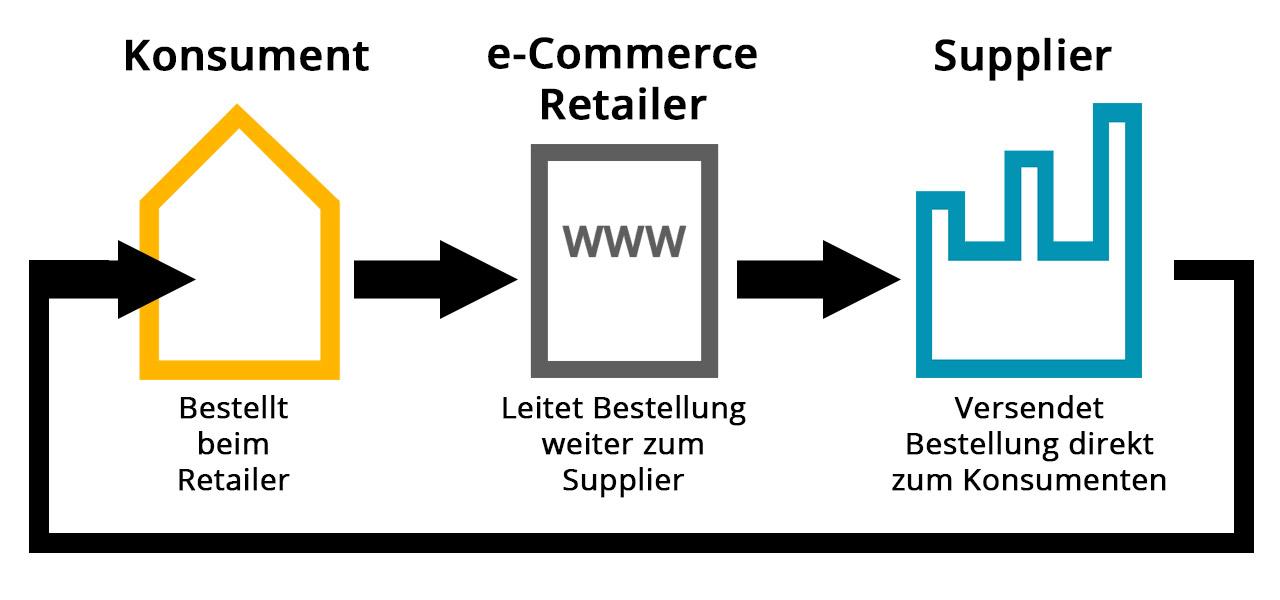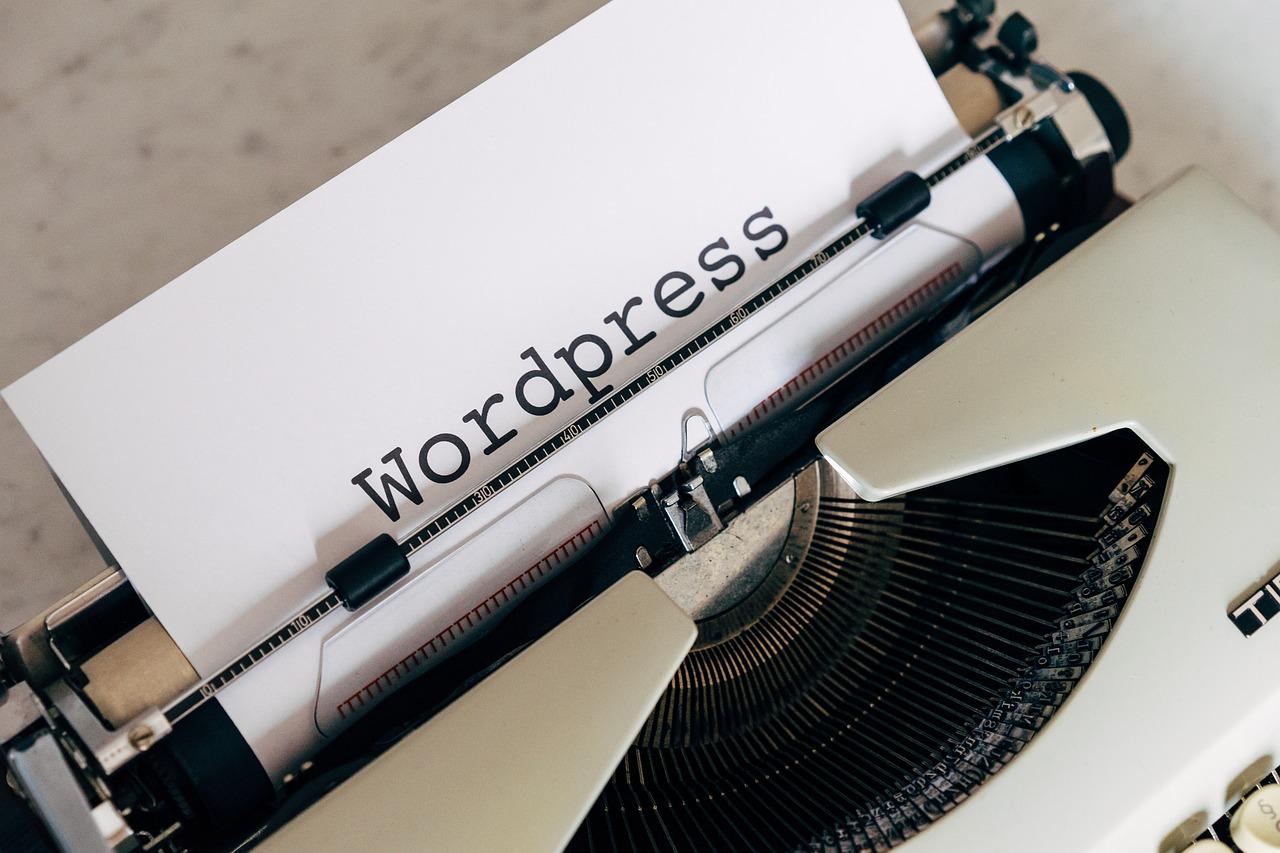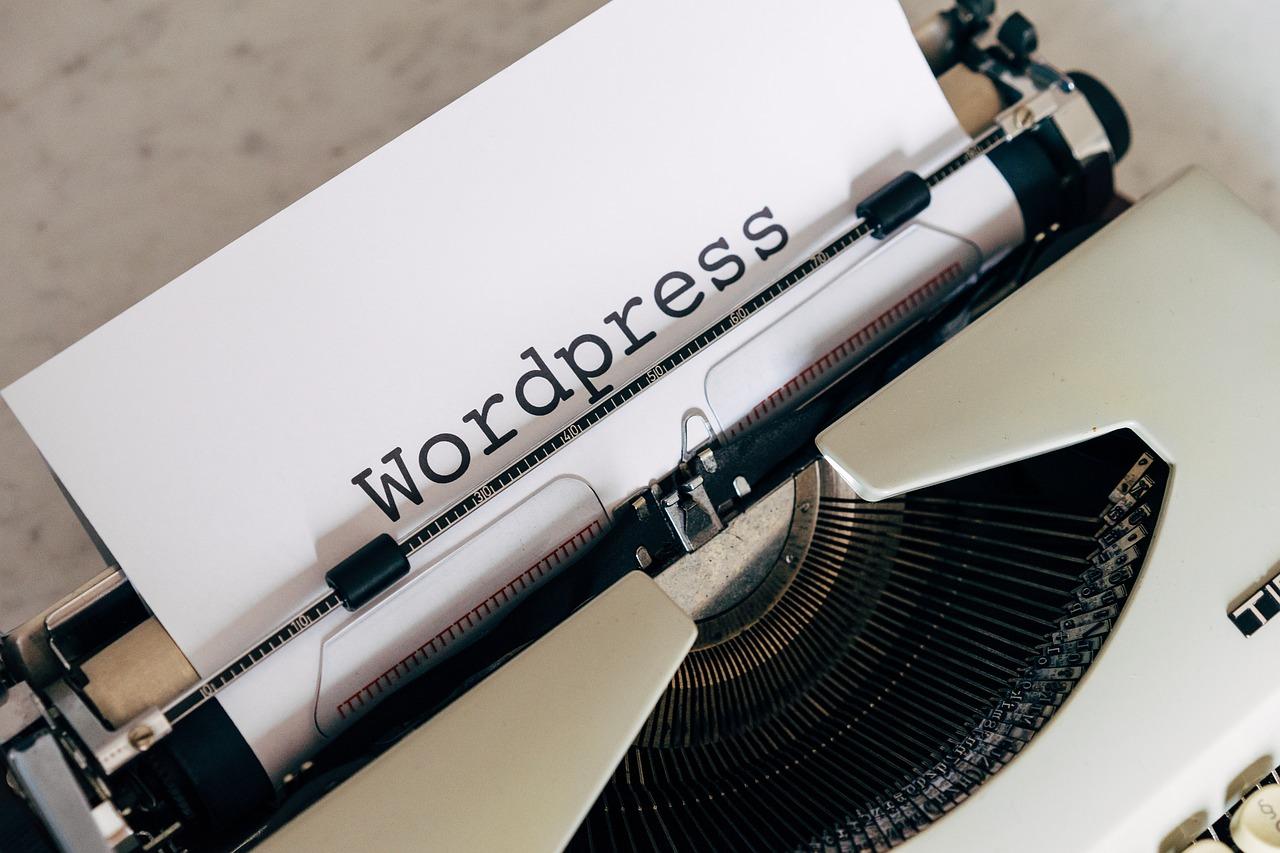Looking for the best Shopify alternatives for your eCommerce store in 2021? You’re in luck! From user-friendly interfaces to amazing customization options, platforms like WooCommerce and BigCommerce offer stellar features that can help you thrive online. Let’s dive in!
Best Shopify Alternatives for Ecommerce Stores in 2021
Are you considering launching your own ecommerce store but feel overwhelmed by the options available? Shopify has certainly made a name for itself as a go-to platform for online businesses, but it’s not the only game in town. In fact, there are plenty of fantastic Shopify alternatives that might just be a better fit for your unique needs, especially in 2021. Whether you’re looking for more flexibility, lower fees, or specific features tailored to your niche, the right platform can make all the difference in your ecommerce journey. So, grab a cup of coffee, and let’s dive into the best Shopify alternatives that can help you create a successful online store without breaking the bank or sacrificing your vision!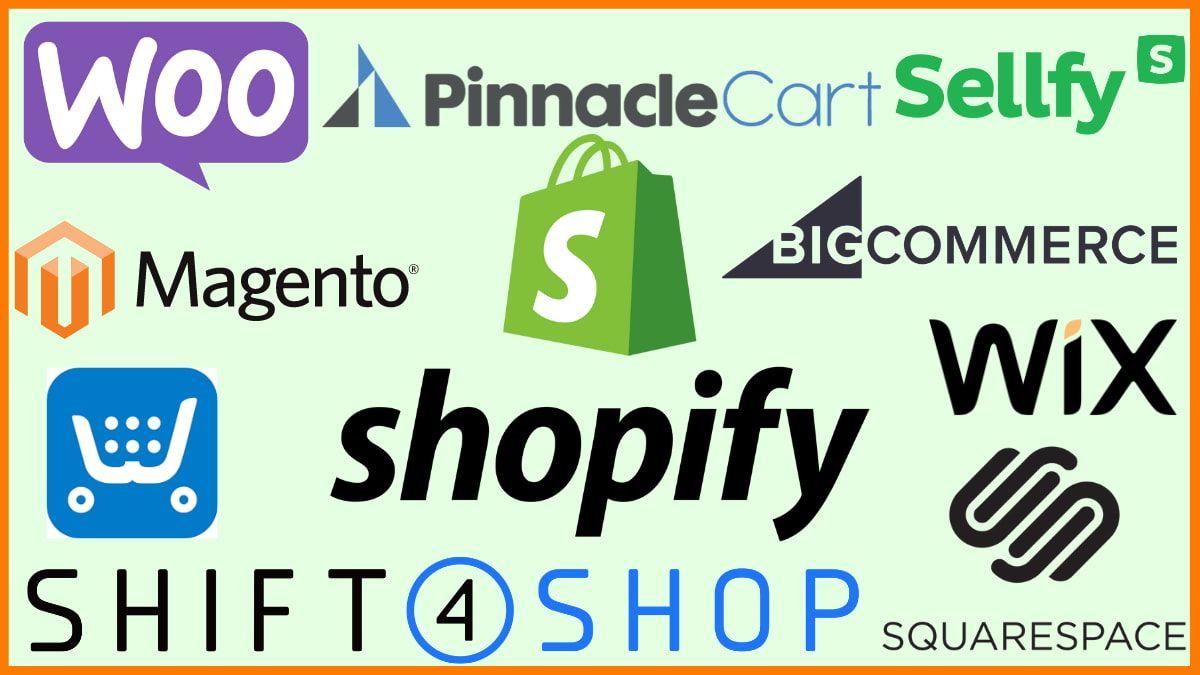
Exploring the Need for Shopify Alternatives in 2021
As eCommerce continues to flourish, many entrepreneurs are discovering that while Shopify is a popular platform, it might not be the best fit for everyone. The need for alternatives has grown, driven by various factors that can significantly impact a business’s success.
One primary concern is the cost structure associated with Shopify. Monthly fees, transaction fees, and the costs of add-ons can quickly add up, leading to inflated operational expenses. Many small businesses seek more cost-effective solutions that offer similar functionalities without breaking the bank. Here are a few alternatives that provide robust features at a lower price:
- WooCommerce: A powerful WordPress plugin that allows for complete customization at minimal costs.
- BigCommerce: Ideal for larger product catalogs with no transaction fees and a variety of built-in features.
- Squarespace: Great for visually-focused stores, offering beautiful templates and seamless integrations.
Another aspect to consider is flexibility and control. Shopify may limit design choices and functionalities unless you opt for custom coding or premium themes. Platforms like WooCommerce or Magento offer extensive customization options, enabling merchants to create a site that truly reflects their brand identity. This is crucial for businesses looking to stand out in a crowded marketplace.
Moreover, the customer support experience can vary significantly across platforms. Shopify has a reputation for solid customer service, but many alternatives offer excellent support channels as well. For instance, platforms like Wix and Weebly provide user-friendly interfaces with helpful resources and responsive support teams, making it easier for newcomers to navigate the eCommerce world.
| Platform | Best For | Key Features |
|---|---|---|
| WooCommerce | WordPress Users | Customizable, Low Fees |
| BigCommerce | Large Stores | No Transaction Fees, Scalability |
| Squarespace | Portfolios & Services | Stunning Templates, Ease of Use |
Ultimately, the quest for the right eCommerce platform hinges on understanding individual business needs. Whether it’s cost, flexibility, or support, the right alternative can empower entrepreneurs to thrive in a competitive environment. By carefully weighing options and considering unique functionalities, businesses can find a platform that not only meets their needs but also fuels their growth. Exploring these alternatives could be the key to unlocking untapped potential in the eCommerce landscape.
Diving into User-Friendly ECommerce Platforms That Stand Out
When it comes to building an online store, user experience is paramount. Ecommerce platforms that prioritize ease of use not only attract more customers but also convert them into loyal shoppers. If you’re on the lookout for Shopify alternatives that deliver a seamless experience for both merchants and customers, you’re in the right place. Let’s explore some standout platforms that make selling online a breeze.
WooCommerce is a favorite among those who want more control over their online stores without sacrificing usability. This plugin for WordPress transforms any site into a full-fledged ecommerce store. With its vast array of themes and extensions, you can customize your store to fit your unique brand. Plus, the intuitive interface means even those without technical experience can navigate it with ease.
BigCommerce is another formidable contender that deserves your attention. Known for its robust built-in features, it allows you to scale your business without the need for numerous add-ons. With a focus on SEO and marketing tools, BigCommerce makes it simple to attract new customers. The platform is designed to accommodate businesses of all sizes, ensuring that you’ll have the features you need as you grow.
For those seeking simplicity without compromising on features, consider Squarespace. It’s perfect for creative entrepreneurs and small businesses. With its visually stunning templates and drag-and-drop functionality, setting up your store is straightforward and enjoyable. Squarespace also offers integrated marketing tools, which means you can promote your products directly from your platform.
Then there’s Wix, a platform that excels in design flexibility. Wix’s ecommerce capabilities are impressive, especially for those who want a visually appealing store. The platform’s user-friendly editor allows you to customize nearly every aspect of your site, making it a fantastic option for artists and small brands looking to showcase their products attractively.
| Platform | User-Friendliness | Best For |
|---|---|---|
| WooCommerce | Easy to Navigate | WordPress Users |
| BigCommerce | Feature-Rich | Growing Businesses |
| Squarespace | Visually Stunning | Creative Entrepreneurs |
| Wix | Highly Customizable | Artists and Brands |
Ultimately, the best choice depends on your specific needs and the nature of your business. Each of these platforms offers unique features tailored to different audiences, and they all share a commitment to user-friendly design. Whether you’re a startup, a seasoned business owner, or an artist looking to sell your creations, there’s an option that will meet your needs and help you thrive in the competitive world of ecommerce.

How Cost-Effective Solutions Can Boost Your Bottom Line
In the world of eCommerce, finding cost-effective solutions is essential for maintaining a healthy bottom line. With various Shopify alternatives available, you can save on monthly fees while still delivering an exceptional shopping experience to your customers. Here are some ways that exploring these alternatives can directly impact your profitability.
Reduced Subscription Costs: Many Shopify alternatives offer lower monthly subscription fees, enabling you to allocate more funds toward marketing or product development. For instance:
- WooCommerce: Free to use with your WordPress site, you only pay for hosting and any premium plugins.
- Big Cartel: Perfect for smaller stores, starting at just $9.99/month.
- Squarespace: Offers eCommerce plans starting at $18/month, ideal for those who want a beautifully designed site.
Elimination of Transaction Fees: Many Shopify alternatives have lower or no transaction fees, which can drastically improve your profit margins. This means more cash flow for reinvesting in your business. Take a look at:
- Magento: No transaction fees, but requires some technical knowledge.
- Weebly: Offers free eCommerce with no transaction fees on certain plans.
- OpenCart: Completely free with the potential for limitless customization.
Enhanced Flexibility: Choosing a platform tailored to your specific needs can bring about improvements in efficiency and performance. For example, switching to WooCommerce allows you to take advantage of numerous plugins that can automate tasks, saving time and reducing labor costs. This means:
- Streamlined inventory management through integrations with various applications.
- Automated email marketing solutions to nurture customer relationships.
- Customizable checkout options that can increase conversion rates.
Improved SEO Capabilities: Many alternatives come with built-in SEO features or allow for easy enhancements, helping you attract organic traffic without the need for extensive ad spending. Platforms like WordPress with WooCommerce provide:
- SEO plugins that help optimize product descriptions and images.
- Customizable permalinks for better search engine indexing.
- Rich snippets for product reviews and ratings to improve visibility.
Scalability Options: Cost-effective solutions often provide better scalability without the high costs associated with upgrading plans. Platforms like BigCommerce allow you to grow your store without worrying about increased fees as your sales rise. This means:
| Platform | Starting Price | Transaction Fees | Scalability |
|---|---|---|---|
| WooCommerce | Free | None | Unlimited |
| BigCommerce | $29.95/month | None | Unlimited |
| Squarespace | $18/month | 3% | Limited |
By carefully choosing a Shopify alternative that aligns with your business goals, you can implement these cost-effective solutions that not only enhance your store’s performance but also contribute to a healthier bottom line. When you save on operational costs, invest in strategic growth initiatives, and optimize your processes, you’re paving the way for sustainable business success.

Unpacking Customization Features That Beat Shopify
When it comes to building an online store, the importance of customization cannot be overstated. Many businesses seek platforms that offer robust customization options, allowing them to create a unique shopping experience. While Shopify is a popular choice, there are several alternatives that outshine it in terms of flexibility and personalization.
Flexibility in Design: One major advantage of some Shopify alternatives is the degree of design flexibility they offer. Platforms like WooCommerce and BigCommerce allow for deeper customization of themes and layouts without the need for extensive coding knowledge. This means store owners can adapt their storefronts to align perfectly with their branding, ensuring a cohesive look that resonates with their target audience.
Advanced Customization Tools: Some alternatives come equipped with advanced tools that enable detailed customization of every aspect of the store. For instance, platforms like Magento provide powerful options for modifying product pages, checkout processes, and overall user experience. This level of control is particularly beneficial for larger businesses that require specific functionalities to cater to their customer base.
Third-Party Integrations: Enhancing your store often involves integrating various third-party applications. Alternatives to Shopify may offer a broader range of integrations with marketing tools, customer service platforms, and payment processors. This can be especially advantageous as it allows for a more tailored approach to managing customer relations and streamlining operations.
Comprehensive Development Community: Platforms like WooCommerce benefit from a vast developer community that continuously contributes plugins and extensions. This community-driven approach means that users can find unique solutions tailored to their specific needs, further enhancing the customization capabilities of their stores.
Cost-Effective Customization: Many alternatives also provide more cost-effective options for customization. With Shopify’s subscription model, costs can quickly escalate with the addition of apps and themes. On the other hand, open-source platforms often allow for free or low-cost options that can be modified to fit a store’s requirements without breaking the bank.
| Feature | Shopify | WooCommerce | BigCommerce |
|---|---|---|---|
| Design Flexibility | Limited | High | Moderate |
| Advanced Customization | Moderate | High | High |
| Third-Party Integrations | Extensive | Extensive | Moderate |
| Community Support | Limited | Extensive | Moderate |
| Cost for Customization | High | Low | Moderate |
if your aim is to create a truly unique and tailored online shopping experience, exploring alternatives to Shopify that prioritize customization is essential. By leveraging the flexibility, advanced tools, and community support available on these platforms, you can build an ecommerce store that not only meets but exceeds your business goals.
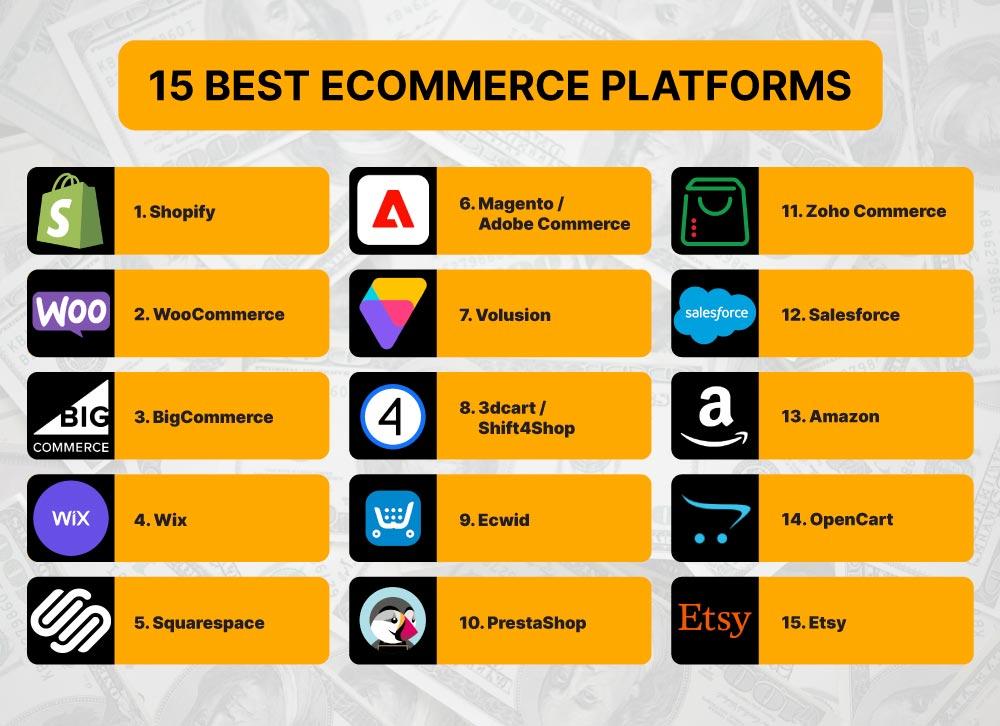
Evaluating the Best ECommerce Platforms for Scalability
When considering the scalability of eCommerce platforms, it’s essential to understand how well they can adapt to your business growth. A platform that supports your current needs while also offering flexibility for future expansion is crucial for long-term success. Here are some key factors to evaluate:
- Performance Under Load: Look for platforms that maintain high performance during peak traffic times. This includes fast load times and minimal downtime, which are vital for customer satisfaction.
- Customization Options: The ability to customize your store as you grow is important. Platforms that offer extensive plugins, themes, and APIs allow for unique branding and features that can evolve with your business.
- Multi-Channel Selling: Evaluate how the platform integrates with various sales channels such as social media, marketplaces, and brick-and-mortar stores. A comprehensive solution will enable you to reach more customers effortlessly.
- Inventory Management: As your business expands, managing inventory becomes more complex. Platforms that offer robust inventory management tools will help you track stock levels, automate reordering, and prevent overselling.
- Support and Resources: A scalable platform should come with strong customer support and educational resources. This ensures you can find help when needed and learn how to leverage the platform effectively as your business grows.
To illustrate the differences in scalability among popular eCommerce platforms, consider the following comparison:
| Platform | Load Handling | Customization | Support |
|---|---|---|---|
| Shopify | Good | Moderate | 24/7 Support |
| BigCommerce | Excellent | High | 24/7 Support |
| WooCommerce | Variable | Very High | Community Support |
| Magento | Excellent | Very High | Professional Support |
Ultimately, choosing the right platform is about aligning its features with your business goals. Consider your current needs but also anticipate where you want to be in the next few years. Whether you’re looking to branch out into new markets or enhance your product offerings, a scalable eCommerce platform will provide the necessary tools to help you succeed.
Integrating Seamlessly: Payment Gateways and Extensions to Consider
When it comes to enhancing your ecommerce store’s functionality, choosing the right payment gateway is crucial. Integrating payment solutions that offer flexibility, security, and ease of use can significantly improve your customers’ shopping experience. Here are some key payment gateways and extensions that you should consider:
- PayPal: Widely recognized and trusted, PayPal allows customers to make transactions effortlessly. Its integration with various ecommerce platforms is seamless, providing instant payment confirmations and a user-friendly interface.
- Stripe: Known for its developer-friendly API, Stripe is perfect for businesses looking to customize their payment process. It supports various payment methods, including credit cards, ACH transfers, and even cryptocurrency.
- Square: Ideal for businesses with both online and offline sales, Square’s payment processing integrates smoothly with inventory management. Its ease of use and competitive fees make it a popular choice.
- Authorize.Net: A veteran in the payment processing game, Authorize.Net offers robust fraud protection and a wide array of payment options, ensuring your store can cater to various customer preferences.
In addition to these gateways, there are several extensions that can elevate your ecommerce experience:
- Shopify Payments: If you’re looking for a Shopify alternative, consider platforms like BigCommerce that offer built-in payments. This not only simplifies the checkout process but also reduces transaction fees.
- WooCommerce Extensions: If you’re running a WordPress site, WooCommerce offers numerous extensions to enhance payment options, including subscriptions and memberships, which can help boost your recurring revenue.
- Multi-Currency Support: Consider integrating extensions that allow your store to accept multiple currencies. This is especially important if you’re targeting international customers, making it easier for them to shop without worrying about currency conversion.
When integrating these payment gateways and extensions, ensure they align with your business model and customer needs. The right combination can lead to increased conversions, reduced cart abandonment, and overall customer satisfaction. Always keep an eye out for updates and new features that can help you stay ahead in the competitive ecommerce market.
| Payment Gateway | Key Features | Ideal For |
|---|---|---|
| PayPal | Instant payment confirmations, user-friendly | Small to medium businesses |
| Stripe | Customizable API, supports cryptocurrencies | Tech-savvy businesses |
| Square | Offline and online integration, competitive fees | Retail and ecommerce hybrids |
| Authorize.Net | Robust fraud protection, multiple payment options | Established ecommerce websites |

Customer Support That Makes a Difference for Your Business
In the competitive world of ecommerce, exceptional customer support can be the game-changer that sets your business apart. When customers feel valued and supported, they’re more likely to return, recommend your brand, and share their positive experiences. Therefore, choosing an ecommerce platform with top-notch customer support is crucial, especially when dealing with the various challenges that arise in online retail.
Among the alternatives to Shopify, several platforms offer exceptional customer service that can cater to your business’s unique needs. Here are some of the standout options:
- BigCommerce: Known for its robust built-in features, BigCommerce also provides 24/7 customer support, ensuring that help is always just a call or click away.
- WooCommerce: This WordPress plugin has a vast community and extensive documentation, making it easy for users to find answers. Plus, numerous third-party support options are available.
- Magento: For businesses that require customization, Magento offers a plethora of support options, including community forums and professional assistance.
- Squarespace: The user-friendly interface comes with dedicated support, which is perfect for those who prioritize design and ease of use.
Each of these platforms not only provides reliable support but also empowers you with the tools necessary to resolve issues independently. This combination is vital for maintaining smooth operations and minimizing downtime.
Consider the following table to compare the customer support offerings of these Shopify alternatives:
| Platform | Support Type | Availability |
|---|---|---|
| BigCommerce | 24/7 Phone, Chat, Email | Always Available |
| WooCommerce | Community Forums, Documentation | Flexible |
| Magento | Community, Professional Support | Varies |
| Squarespace | Email, Live Chat | 9 AM – 8 PM EST |
Investing in a platform with exemplary customer support not only enhances your operational efficiency but also fosters a positive relationship with your customers. When issues arise, having access to knowledgeable support can save you time, money, and frustration. This aspect will significantly influence your overall business success in the bustling ecommerce landscape.
Real Success Stories: Brands Thriving Outside of Shopify
While Shopify is a popular choice for many eCommerce businesses, there are numerous brands that have found extraordinary success by venturing beyond its platform. These businesses have demonstrated that there are viable alternatives that can cater to unique needs, enabling them to flourish.
1. Allbirds: This sustainable footwear brand opted to use a custom-built platform that allows for exceptional control over its branding and user experience. By focusing on a seamless customer journey and emphasizing eco-friendly practices, Allbirds has carved out a niche that resonates with consumers who prioritize sustainability.
2. Gymshark: Initially starting on social media platforms and utilizing minimal resources, Gymshark leveraged its community-driven approach to build a loyal customer base. By utilizing WooCommerce for its online store, Gymshark focused on agility and direct customer engagement, leading to rapid growth and a valuation exceeding $1 billion.
3. Blue Apron: Blue Apron chose to create a dedicated website to manage its meal kit delivery service. By using a tailored approach that emphasizes subscription services, they effectively captured the hearts of home cooks. Their custom platform allows them to easily manage subscriptions and personalize customer experiences.
Each of these brands showcases the diverse pathways to success in eCommerce. Here are a few reasons why brands thrive outside of Shopify:
- Customizability: Brands can tailor their websites to reflect their unique identities, ensuring that they stand out in a crowded marketplace.
- Direct Customer Engagement: Having control over the entire user experience allows brands to build stronger relationships with their customers.
- Scalability: Alternative platforms can provide the flexibility needed for brands to grow at their own pace without being restricted by fixed plans.
As the eCommerce landscape continues to evolve, these success stories serve as inspiration for businesses exploring different avenues. The key takeaway? There’s no one-size-fits-all solution in eCommerce, and sometimes, stepping outside the box can lead to remarkable achievements.
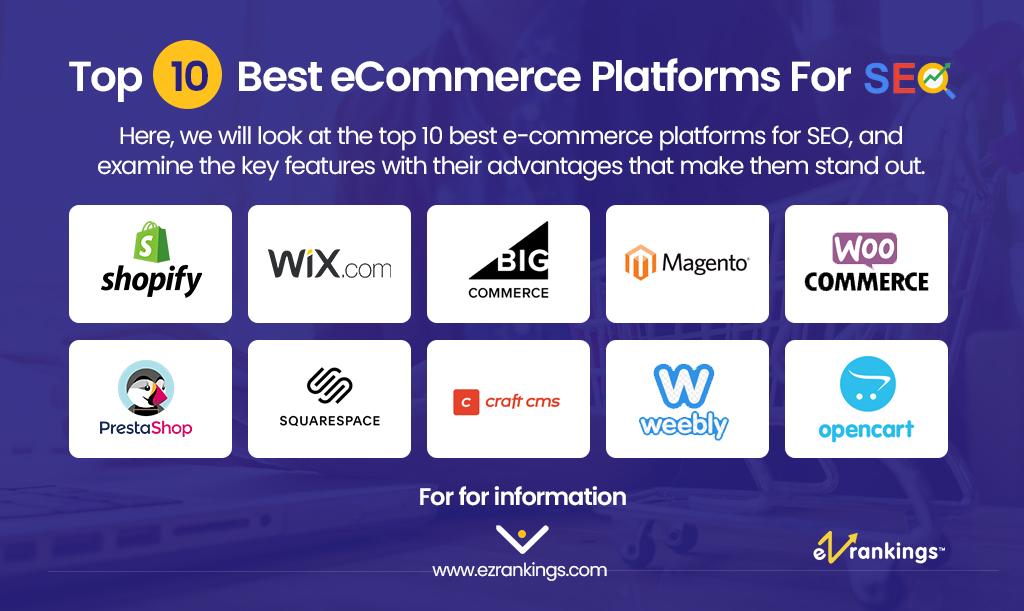
Final Thoughts: Choosing the Right Platform for Your ECommerce Journey
When embarking on your eCommerce journey, selecting the right platform can be a pivotal decision that shapes your success. While Shopify is a popular choice, its limitations may lead you to explore other options that better align with your business needs. Here are some key factors to consider when choosing an alternative:
- Cost-Effectiveness: Analyze the pricing structure of each platform. Some alternatives offer lower monthly fees or transaction costs, allowing you to allocate more resources to marketing and growth.
- Customization: If you’re looking for a unique brand identity, platforms like WooCommerce or BigCommerce provide extensive customization options that empower you to tailor your store to your vision.
- Ease of Use: Consider how user-friendly the platform is. If you’re not tech-savvy, a platform with an intuitive interface can save you time and headaches.
- Scalability: As your business grows, your platform should grow with you. Look for solutions that offer robust features and capabilities to handle increased traffic and sales.
- Support and Community: A strong support system and active community can be invaluable. Platforms with extensive documentation and forums can help you troubleshoot issues as they arise.
To help you visualize your options better, here’s a quick comparison of popular Shopify alternatives:
| Platform | Starting Price | Key Features |
|---|---|---|
| WooCommerce | Free (with hosting costs) | Highly customizable, extensive plugins |
| BigCommerce | $29.95/month | Built-in SEO tools, no transaction fees |
| Squarespace | $18/month | Beautiful templates, great for creatives |
| Magento | Free (self-hosted version) | Powerful for large businesses, vast features |
Ultimately, the right platform for your eCommerce store will depend on your specific needs, budget, and long-term goals. Take the time to explore various options, consider trial periods where available, and seek feedback from other users. The investment in a suitable platform will pay dividends in the form of increased sales, a better customer experience, and a thriving business.
Frequently Asked Questions (FAQ)
Sure! Here’s a Q&A section for an article on “Best Shopify Alternatives for Ecommerce Stores in 2021”:
Q1: Why should I consider alternatives to Shopify for my ecommerce store?
A1: Great question! While Shopify is a popular choice, it’s not the only player in the game. You might find that alternatives offer better pricing, unique features, or more flexibility for your specific business needs. Exploring other platforms can lead you to discover solutions that provide better support, lower transaction fees, or enhanced customization options that can significantly benefit your store.
Q2: What are some of the top alternatives to Shopify?
A2: There are several fantastic options out there! For instance, WooCommerce is a great choice if you’re already familiar with WordPress. It’s highly customizable and perfect for those looking to integrate their online store with a blog or content. BigCommerce is another strong contender, offering powerful built-in features and no transaction fees. Then there’s Wix, which is super user-friendly for beginners and allows for beautiful website designs. Each of these platforms has its unique strengths, so it really depends on your business goals!
Q3: How do pricing structures of these alternatives compare to Shopify?
A3: Pricing varies widely among platforms. While Shopify has a straightforward pricing model that starts at around $29 per month, some alternatives like WooCommerce can be more cost-effective, especially if you already have a WordPress site. BigCommerce’s pricing is comparable, but they often include more features at the base price, which can save you money in the long run. Always consider additional costs, like transaction fees and app integrations, when evaluating your options!
Q4: Are these alternatives as easy to use as Shopify?
A4: Ease of use can differ from one platform to another. Shopify is known for its user-friendly interface, which is perfect for beginners. However, platforms like Wix offer a drag-and-drop feature that many find intuitive. WooCommerce has a steeper learning curve if you’re not familiar with WordPress, but it’s incredibly powerful once you get the hang of it. It’s all about finding the right balance between ease of use and the functionality you need!
Q5: What kind of support can I expect from these alternatives?
A5: Customer support varies by platform. Shopify is praised for its 24/7 support, while BigCommerce also offers extensive help resources. WooCommerce relies on community forums and documentation, which can be beneficial but may not be as immediate as direct customer service. Be sure to check out their support options to see which aligns best with your business style and needs!
Q6: Should I switch from Shopify to one of these alternatives?
A6: If you’re feeling limited by Shopify’s features, pricing, or flexibility, it might be time to explore your options. However, switching can be a big decision! Consider what you need most for your business. If an alternative offers solutions that better align with your goals, it could be worth making the leap. Just make sure to weigh the pros and cons and do thorough research before committing!
Q7: What’s the most important factor to consider when choosing an ecommerce platform?
A7: The most important factor is understanding your business’s unique needs. Are you looking for scalability, ease of use, robust marketing tools, or specific integrations? Make a list of your priorities and evaluate each platform against those. This will help you find the perfect match that sets your ecommerce store up for success!
Feel free to customize or expand upon these questions and answers to fit your article’s needs!
To Conclude
As we wrap up our exploration of the best Shopify alternatives for eCommerce stores in 2021, it’s clear that there’s a wealth of options out there tailored to fit various business needs. Whether you’re a budding entrepreneur or a seasoned seller looking to expand, the right platform can make all the difference in your online success.
Remember, the ideal eCommerce solution should align with your specific goals, budget, and growth aspirations. Don’t rush into a decision; take the time to explore demos, read reviews, and consider what features are non-negotiable for your store.
With platforms like WooCommerce, BigCommerce, Wix, and others offering unique advantages, you owe it to yourself to weigh your options carefully. After all, your eCommerce journey is not just about selling products; it’s about creating an experience that resonates with your customers and drives your business forward.
So, are you ready to take the leap and find the perfect Shopify alternative for your online store? Dive in, do your research, and choose a platform that empowers you to build a thriving eCommerce business. Your next big success story is just around the corner—let’s go make it happen!


